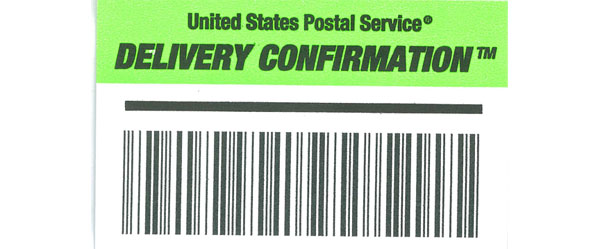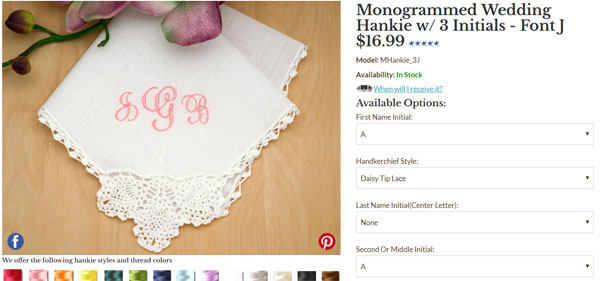If you’ve been selling physical products online for any length of time, chances are you’ve hit a few snafus along the way that where good customer service skills have come in handy.
Even if you run a robust operation, processing large volumes of orders inevitably results in mistakes and situations that are beyond your control.
For example, most online stores rely on 3rd party shippers to deliver their products to the end customer.
Well what happens when there’s a breakdown with your shipper? When something doesn’t get delivered, is it the shipper’s fault or yours?
When a customer makes a complaint, do you trust that they are telling the truth?
With the holiday selling season right around the corner, these problems only get amplified. For example…
- You have to deal with customers wanting to make returns.
- You have to interact with frustrated people trying to make last minute purchases for their friends and loved ones.
- You have to deal with fraudulent orders.
In this post, I’m going to present some of the major customer service dilemmas that we’ve faced over the years and how we resolved them.
Did we do the right thing? You be the judge!
Get My Free Mini Course On How To Start A Successful Ecommerce Store
If you are interested in starting an ecommerce business, I put together a comprehensive package of resources that will help you launch your own online store from complete scratch. Be sure to grab it before you leave!
Customer Service Dilemma #1: Order Not Complete
Several months ago, a customer purchased several dozen linen napkins from our store and she needed them shipped immediately via UPS Next Day Air.
It wasn’t a huge order, but it was large enough that we marked her as a possible long term B2B customer in our database. As a result, we paid extra attention.
Anyway, the linens were delivered on time and everything seemed to be ok. But the following day, she called to complain that we shortchanged her on her order.
She ordered 4 dozen napkins, but claimed to have only received 3 dozen. Now it’s entirely possible that we screwed up but here’s the thing.
One, we processed her order with extra care since she was a potential repeat customer. Two, each set of napkins weighs 1.2 lbs. And her package weighed over 5 lbs!
It is highly unlikely that we didn’t pack her order correctly and we were fairly confident that she was lying to get free product.
How would you deal with this issue? Would you denounce her as a no good lying cheater? Or would you ship her another dozen napkins?
(Scroll to the end to view our response)
Customer Service Dilemma #2: Package Lost In The Mail
This particular customer ordered some handkerchiefs from us 3 weeks before her wedding date. Under normal circumstances, her order should have been delivered within 2-5 business days through the United States Postal Service.
But for some reason, her package was delayed in transit.
Note: Erratic delivery times are pretty common with USPS. Packages usually arrive on time but they don’t guarantee an actual delivery date unless you pay for express shipping. This isn’t ideal but we use USPS for small orders because it is the least expensive way to ship.
In any case, this customer called us inquiring why it was taking so long for her order to be delivered. And after checking the tracking number, her order appeared to be in transit but 2 weeks had already passed.
Based on the delivery confirmation, she had not received her order yet and it was starting to look like her order was either lost in the mail or severely delayed.
Seeing as her wedding date was rapidly approaching, we had a hard decision to make. Do we ask her to wait and jeopardize her not getting her order in time?
Do we send her another package and have her mail the duplicate shipment back to us?
What would you do?
(Scroll to the end to view our response)
Customer Service Dilemma #3: Package Marked As Delivered But Not Received
This particular customer contacted us about an order she placed over a month ago. And when we checked her tracking number, it indicated that her package was successfully delivered.
But even though tracking indicated otherwise, the customer claimed that she never received it and demanded a refund.
Because the package was marked as ‘delivered’, do we trust the customer or the United States Postal Service? Is the customer lying?
What would you do and would the dollar amount of the order affect your decision?
(Scroll to the end to view our response)
Customer Service Dilemma #4: Accepting Personal Checks
Some of our customers don’t feel comfortable paying by credit card. As a result, we also accept cashier’s checks and money orders as payment methods.
One time, a customer placed an order and opted to pay by cashier’s check. But she sent us a personal check instead.
And to make things more complicated, she payed extra for overnight delivery.
Normally, we don’t accept personal checks but this was a fairly large purchase and I didn’t want to lose out on the extra money.
Plus, the lady came across as really sweet over the phone.
Now the safest way to accept a personal check is to wait a full 5 days for the check to completely clear prior to sending out the package.
But this lady was in a rush so her order needed to be shipped immediately.
Would you go through with this transaction or void the order?
(Scroll to the end to view our response)
Customer Service Dilemma #5: Incorrect Personalization
One of the key value propositions for our store is that we offer custom personalization.
For example, customers have the option of adding a 3 letter monogram to their wedding handkerchiefs. But while personalization is a huge profit center for us, it causes one major problem.
Customers often make mistakes and blame you for it
One time, we had a customer spend hundreds of dollars on monogrammed handkerchiefs only to complain that we embroidered the initials in the wrong order.
Here’s what it’s like to configure a monogrammed hanky.
Pretty straightforward right? But this customer didn’t understand that the center letter of the monogram is actually the last name initial and NOT the middle initial.
Long story short, she mixed up the letters and as a result, all of the monogrammed handkerchiefs in her order were stitched out incorrectly.
Then, she got angry and demanded that everything be redone despite the fact that it was her mistake.
What would you do here?
(Scroll to the end to view our response)
Our Response To Dilemma #1: Order Not Complete
We were pretty sure that this customer was lying. After all, there’s no way the package could possibly weigh over 5lbs unless we shipped out the correct amount of product.
However, we didn’t have any proof and we didn’t want to upset this customer in case she had ties to the event planner community.
So here’s what we did.
We ended up shipping her an extra dozen napkins free of charge but we marked her name in our database as “questionable”.
If she were to ever order from us again, we would take photos of her package prior to shipment as proof in case she opened up another dispute.
Note: It’s been several months now and this person has ordered from us a few more times since then. And even though she’s been a difficult customer for other reasons not mentioned in this post, we haven’t had any more cases of “lost product”.
Our Response To Dilemma #2: Package Lost In The Mail
We opted to send this customer another package. Because she ordered well in advance, we didn’t want to risk her not receiving her order in time for her wedding.
While it wasn’t our fault her shipment was delayed, we felt that it was our responsibility to rectify the situation.
Ultimately, we sent her another package with an extra shipping label so she could send the duplicate order back to us if she ever received it.
But in the end, we never received anything back and took the loss.
Our Response To Dilemma #3: Package Marked As Delivered But Not Received
To resolve this dilemma, we went with our gut. This particular order was for a small dollar amount (less than $50). And we rationalized that if she was trying to scam us, she probably would have ordered something more expensive.
Furthermore, she was extremely polite in her emails. And the tone of her writing gave us the impression that she was telling the truth.
The upshot is that we sent her another package and took a loss on this transaction.
Note: We didn’t have to do this. Even if she decided to dispute the charge, we had the delivery confirmation number as proof that she had received her order.
But the bottom line was that my wife and I felt that the small loss was worth it to keep the customer happy.
Now what if this order was for a much higher dollar amount? Would this have made the decision more difficult?
Absolutely! But these situations can be prevented by…
- Using a more reliable shipping carrier like UPS or FedEx for orders over $250
- Paying for signature confirmation.
For larger orders, the extra cost is worth the expense.
Our Response To Dilemma #4: Accepting Personal Checks
Ultimately, we ended up canceling this order because of the risks. In the back of my mind, this lady seemed trustworthy, but we didn’t want to risk the penalty of accepting a bad check.
For the sake of anyone who has never received a bad check before, the fees involved are pretty egregious. And you often have to pay the bounced check fee for attempting to make the deposit even though you are not at fault.
In any case, this transaction ended up being a tough call due to greed:)
But in the end, we decided to stick with our policies. If it wasn’t a rush order, we probably would’ve taken the check but under the circumstances, it wasn’t worth it.
Our Response To Dilemma #5: Incorrect Personalization
My wife and I didn’t see eye to eye on this one. Here’s the bottom line as I saw it.
The customer clearly screwed up and entered in her initials incorrectly because she wasn’t paying attention. In addition, we’ve shipped thousands of these monogrammed handkerchiefs in the last 10 years and have had very few complaints.
We are not mind readers and we have to go by what a customer enters in our system. Furthermore, this order was pretty large and would result in a decent sized loss if it needed to be redone.
I wanted to charge the customer a small fee to redo all of the hankies at cost. But ultimately, my wife decided to redo the entire order free of charge.
Was her decision right or wrong? In the long run, she probably dealt with this one correctly, but I was annoyed that the customer was complaining so vehemently when she was clearly in the wrong.
Anyway, I’m curious to hear your thoughts.
Customer Service Skills 101 – Should You Trust Your Customers?
It’s a fine line in determining whether or not your customer is worthy of your trust. The situations described above are tough calls to make especially since your store has a reputation to uphold and money to make.
My general philosophy is that if the customer is placing their trust in your store to deliver the goods that you have advertised, that you should return their trust as well.
But sometimes it can be a hard call. Would you have acted differently? If so, how would you have handled the situation for your own business?
photo credit: The Missing Link… HMM USPS ‘Mail must get through’ Truck 3140

Ready To Get Serious About Starting An Online Business?
If you are really considering starting your own online business, then you have to check out my free mini course on How To Create A Niche Online Store In 5 Easy Steps.
In this 6 day mini course, I reveal the steps that my wife and I took to earn 100 thousand dollars in the span of just a year. Best of all, it's free and you'll receive weekly ecommerce tips and strategies!
Related Posts In Customer Support
- Customer Service Skills: How Would You Handle These Awkward Situations?
- Crazy Customer Service Stories – Lessons Learned Answering Calls For Our Wedding Shop
- Gorgias Review – How To Cut Customer Service Costs By 30%
- The Best Phone Answering Service For Small Businesses In The US

Steve Chou is a highly recognized influencer in the ecommerce space and has taught thousands of students how to effectively sell physical products online over at ProfitableOnlineStore.com.
His blog, MyWifeQuitHerJob.com, has been featured in Forbes, Inc, The New York Times, Entrepreneur and MSNBC.
He's also a contributing author for BigCommerce, Klaviyo, ManyChat, Printful, Privy, CXL, Ecommerce Fuel, GlockApps, Privy, Social Media Examiner, Web Designer Depot, Sumo and other leading business publications.
In addition, he runs a popular ecommerce podcast, My Wife Quit Her Job, which is a top 25 marketing show on all of Apple Podcasts.
To stay up to date with all of the latest ecommerce trends, Steve runs a 7 figure ecommerce store, BumblebeeLinens.com, with his wife and puts on an annual ecommerce conference called The Sellers Summit.
Steve carries both a bachelors and a masters degree in electrical engineering from Stanford University. Despite majoring in electrical engineering, he spent a good portion of his graduate education studying entrepreneurship and the mechanics of running small businesses.
















In general I’ve found that stores who trust their customers get better return business and word of mouth. I recently bought a refurbished computer. In opening the box it appeared that a piece of the power cord setup was missing. I called the company and without question they sent me an entire power unit which retails for about $60 or so. This tells me this is a company that stands behind it’s product and makes me feel better about my purchase and makes me more inclined to deal with them later on.
Yeah, you will probably get some fraud, but the general good will you create will be worth much more than the product itself. Word of mouth advertising is priceless!
I agree, general good will likely prevail over time, at least I think so, optimistic?
You shouldn’t trust anybody, because basically underneath it all, we are all human, which means we are all inclined to be evil. It takes a lot of work to not be evil. Most people, actually embrace it, and go to the dark side. Beware of the wolf in sheeps clothing. That is the most deadly, kinda like that Madoff guy.
Hey Shea,
Are we feeling a little cynical today?:)
I agree with FFB above completely, I got side tracked, I meant the human race in general, philosophy, I guess, different from business principals
I think you handled these situations correctly, or at leas the way I would. When you’re in customer service-and let’s face not matter what business you’re in, you’re in customer service-you have to treat your customers with respect and that means giving them the benefit of the doubt. Now, if you start to see a pattern with a particular customer, well you have to take a stronger line. With so much competition out there, the quickest way you can lose a customer is by showing them you don’t care about whether or not they are satisfied with your service.
Hey Scott,
That was the conclusion that my wife and I came to when we decided to take losses on these transactions. I hope that this all pays off in the long run for our store.
I think you made the right choice in all your examples. That lady with the check should know better. I’m going out on a limb and guessing she was older. I wouldn’t expect a company to take my check… let alone ship me my order without letting the check clear.
Hi Ashley,
I actually didn’t get the age of that woman, but she definitely sounded at least in her 50’s if not older. Maybe it’s the nature of what we sell, but we do get a fair percentage of people who aren’t comfortable with credit card transactions online.
I would never expect most business to accept checks anymore – especially online (its not a print Sears and Robuck catalog).
I did have an experience where I ordered a dress from Saks.com during Cyber Monday. When I checked the tracking number though FedEx a few days later, they said it was delivered to our mailbox service. Well, it wasn’t. The tracking information even said that they left it at a “back door” which is virtually impossible because there is no accessible “backdoor” to the building.
I called and Saks sent another package right away. We got the original package the next day. It turns out that the FedEx driver in our area sometimes lie and say a package was delivered when it wasn’t to keep from getting in trouble for missing deadlines.
Hi Carla,
That’s interesting. I wonder if Saks complained to FedEx and got their money back. I tried to contact USPS on the phone, online and in person to no avail. They just don’t seem to care. Marking the package as delivered is totally wrong. It just sucks that there’s no way to track things and hold the delivery guy accountable for his actions. Once we sell enough volume to negotiate with UPS or FedEx, USPS will be a thing of the past. I hate USPS. They are the most unreliable carrier of them all.
@Steve
This is interesting because USPS has been more reliable than FedEx in my recent experience.
I don’t know if Saks got their money back, but they did end up crediting me for the cost of shipping (even though it wasn’t their fault). The difference is, large companies can afford to do that, we cant!
Well, I had a computer shop for 13 years. I always try to see the good in people, so I would believe the customer unless I know some that tells me different.
Thank You,
Giovanna Garcia
Hi Giovanna,
It’s interesting. I used to sell computer parts as well and I found that tech buyers tend to less trustworthy in general. I had several people try to return equipment that was “fried” that they denied they broke themselves. I also had people try and return different items than they purchased. In any case, I agree with you. Trust first unless there’s a reason not to.
Steve,
Congratulations on having your article picked as one of the Month’s Top Ten blogposts for the Carnival of Trust.
You can see the Carnival of Trust this month at Diane Levin’s MediationChannel, at
http://mediationchannel.com/2009/01/12/january-2009-carnival-of-trust/
The Carnival of Trust is the brainchild of Charles H. Green at TrustedAdvisor.com. You can read more about the Carnival (past carnivals, how to submit) at
http://trustedadvisor.com/trustmatters.carnivalofTrust/
Congratulations. And I really enjoyed the article. (For what it’s worth, I would have trusted all three. But that’s just me. Good food for thought, thanks).
Charles H. Green
Thanks Charles,
I just took a look at both websites and your credentials are impressive. Glad you enjoyed the article. I’m sure that I’ll have more material to submit in future posts. Thanks for the opportunity.
I would say yes we should trust the customer as trust will help not only retain existing customers but also attract new customers
I don’t have much to say direct from my end. But may i just ask if “HOW DO YOU DO NOW?”
Thanks
john
“The holidays and Christmas are always a difficult time for an online store because you have to deal with the flood of orders that come in.”
What a great problem to have!
No, I would not have made different decisions. The check purchase might have panned out, but sooner or later, without your policy you would be caught out. Also, I think the check-purchase lady likely knew she had put you in a financially awkward position, and technically by not paying up-front she did not put her trust in you, so she did not deserve your trust. Also, I think fraud is more likely with large orders.
The first two cases were fairly easy decisions I think, but what would you do if they were large orders? I don’t know the answer to this, but I’m wondering if the customer would have to sign for delivery, or if insurance is required on orders over a certain amount.
Ultimately, as a consumer, I think it is a merchant responsibility to deliver my package (or refund) once I have paid for it. If the carrier can’t get it right, it shouldn’t be my problem, as I have already paid for the goods.
I like to believe that most customers are honest and they just want the product that they purchased. I treat them the way I would want to be treated if I were in their shoes.
In the case of the monogram ordered wrong, I think I would have offered them a deal to redo it, but I probably wouldn’t have been willing to eat the whole thing. I guess I’m assuming that you have some kind of instruction on your site explaining how that monogram works, but even if not, they always could have asked.
Hi Steve, interesting article – after being in local small business for over 20 years I have learnt to trust my gut instinct on all things. The times I have trouble is when I for whatever reasons have gone against my gut extinct.
ps I would never accept personal cheque especially for online purchase & “rush” delivery.
The last name initial in the middle does sound rather confusing. It’s possible I may have made the same mistake when ordering as I would think it would be displayed first, middle, last. Does the customer see a sample of what the finished product will look like on the screen? Even if the information is in the description of the item, that could easily be missed if there’s a lot of information on the screen. In the printing industry, we have the customer sign off on a digital proof to confirm everything looks as it should. If it’s a large order, this might be a good policy to have in place to avoid situations like this happening again in the future. If this wasn’t possible, at minimum having a visual guide showing the layout of the letters would be helpful i.e. arrows could point to the placement of each letter in the sample image.
I’d say to trust the customer every single time. If it’s the type of business where you keep track of your customers, you can look into their account history to see if they continue to game the system by asking for favors.
After working for a couple of ecommerce companies, I feel that you handled all these situations correctly. I would also factor in a certain amount of “loss” each year as well.
You should trust your customers and there are going to be a few that will try to sting you. The number of people who I sold bras too and you get a few that say their Item never arrived (even though it was signed for). you just got to take your losses. Its always will be a part of any business.
I probably would have done something similarl, I will put them on the suspicious territory and use ups not upsp.